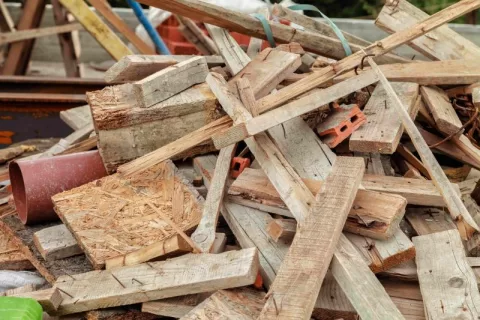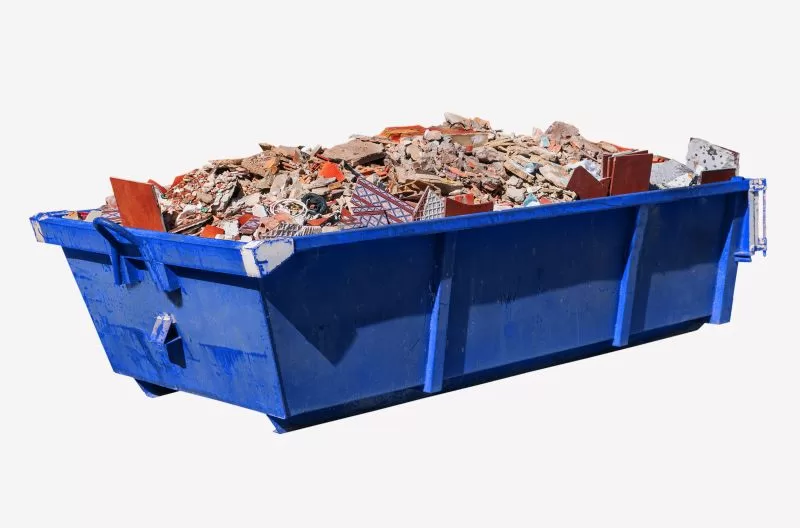Home renovations are exciting but can quickly turn stressful if you don’t have a plan for handling the waste. Whether you’re redoing a bathroom or tackling a complete overhaul, you’ll generate a lot of debris.
Renting a roll off dumpster is one of the easiest ways to manage all that waste. These large, open-top containers are delivered on a truck and “rolled off” at your location, making them perfect for temporary projects like home remodels. Once your project is complete, the rental company hauls it away for disposal, saving you trips to the dump.
However, choosing the right dumpster can feel overwhelming if you’re not sure what to look for. Here are some tips to help you pick the perfect roll off dumpster rental.
1. Choose the Right Size
Selecting the right dumpster size is important because a too-small dumpster may require extra pickups, while a too-large one wastes money on unused space. By estimating the amount of debris your project will generate, you can avoid these issues and choose a dumpster that fits your needs.
When searching for the right roll off dumpster rental in North Carolina, you’ll find dumpsters in a variety of sizes:
- 10-yard dumpster: This is perfect for small projects, like a bathroom renovation or minor cleanout.
- 20-yard dumpster: This size is ideal for medium-sized jobs, such as a kitchen remodel or removing old flooring.
- 30-yard dumpster: It’s a good choice for larger projects, like a home addition or multi-room renovation.
- 40-yard dumpster: This is best suited for large-scale projects or major cleanouts involving substantial debris.
When in doubt, it’s better to go slightly larger than too small. Having enough space for all the debris will save you time and money in the long run.
2. Know What You Can (and Can’t) Toss

Not everything can be thrown into a roll off dumpster. Common items you can dispose of include:
- Construction debris (wood, drywall, tiles)
- Old furniture and appliances
- Yard waste (leaves, branches)
But most rental companies won’t allow hazardous materials like paint, chemicals, or electronics. Ask your provider for a full list of acceptable items to avoid extra fees or complications.
3. Look for Sustainable Options
If sustainability is important to you, ask the rental company about recycling options. Many companies now offer services to sort and recycle materials like wood and metal, reducing landfill waste.
In addition to using a roll off dumpster for larger debris, you can also arrange for regular trash pickup in Wilmington, NC, for smaller, everyday waste. Combining these services helps ensure that your renovation project minimizes its environmental impact while keeping your home and neighborhood clean.
4. Consider Placement
Think about where you’ll put the dumpster. It needs to be accessible for drop-off and pickup and should stay out of your way during the project. Things to consider include:
- Driveway space: Can it fit on your property, or does it need to be placed on the street?
- Dumpster Permit: If the dumpster will be placed on public property, you may need a permit.
- Ground protection: Heavy dumpsters can damage driveways, so placing wood planks or plywood under them can help prevent cracks.
Having a clear and convenient location will save you stress during your project. It will also make the pickup process smoother when the dumpster is full.
5. Compare Rental Companies
Not all roll off dumpster rental companies are the same, so it’s essential to shop around. Here are key factors to consider:
- Pricing: Some companies charge a flat rate, while others bill based on weight or rental duration. Ask for a clear breakdown to avoid hidden fees.
- Rental period: Know how long you’ll need the dumpster and what it costs to extend the rental.
- Customer service: Choose a company known for responsive service and reliable pickup/drop-off schedules. Reading reviews can help you make an informed decision.
Comparing options ensures you’re getting the best value for your needs. It also helps you avoid unexpected costs and service issues.
6. Understand Weight Limits
Each dumpster has a weight limit, and going over it can result in extra charges. This is especially important if you’re disposing of heavy materials like concrete or bricks. To avoid weight overages:
- Estimate the weight of materials: Know roughly how much your waste will weigh, especially if it’s heavy construction debris.
- Distribute the weight: Spread debris evenly to avoid overloading one side.
- Ask about weight limits: Be clear on your rental’s weight limit and the penalties for exceeding it.
By planning ahead, you can avoid costly surprises. Staying within weight limits will keep your project on budget and stress-free.
7. Plan for Pickup
Make sure you understand your rental company’s pickup policy. Can you schedule it when you’re done, or will they come automatically after a set time? Some companies charge for missed pickups if the dumpster isn’t accessible.
Before the pickup date, ensure the path is clear of obstacles so the truck can access the dumpster. Having a smooth pickup process will save you unnecessary fees and delays.
Wrapping It Up
Renting the right dumpster can mean the difference between a smooth renovation and a frustrating one. It’s more than just finding a roll off container—it’s about keeping your project on track, your budget intact, and your space organized. The right rental gives you peace of mind to focus on what truly matters—transforming your home.

